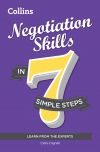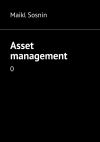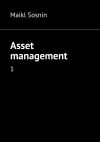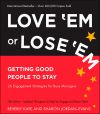Правообладателям!
Представленный фрагмент книги размещен по согласованию с распространителем легального контента ООО "ЛитРес" (не более 20% исходного текста). Если вы считаете, что размещение материала нарушает ваши или чьи-либо права, то сообщите нам об этом.Читателям!
Оплатили, но не знаете что делать дальше?
Текст бизнес-книги "Get that Job in 7 simple steps"
Автор книги: Peter Storr
Раздел: Жанр неизвестен
Текущая страница: 2 (всего у книги 2 страниц)
Internet job search sites
Registering with internet job search sites has become an incredibly popular method of looking for work for one simple reason: everything is there in one place, to be accessed whenever and wherever you like. Employers can advertise vacancies and search through pre-uploaded CVs to see if there are any initial matches. Job hunters can get career advice through articles and online tutorials or webinars. They can also get advice on how to build an effective CV (although this advice may be tailored to the format they want for CVs to be uploaded to their particular site). And, of course, you can search for job vacancies – by job type or title, salary, location and specific organisation. You can also register to get immediate notification of vacancies sent directly to your phone or email address.
Some have links to related career services elsewhere, such as the Chartered Institute for Personnel and Development (CIPD) and the Open University, where you can get advice on flexible learning and development or enhancing and building on your qualifications. Others have links to – or even arrange themselves – career roadshows that travel around the country giving advice and putting job seekers and local employers together. These usually include masterclasses in CV writing and interview techniques. There are many of these internet job search sites, but some of the most popular are:
Monster (www.monster.co.uk)
Reed (www.reed.co.uk)
TotalJobs (www.totaljobs.com)
Fish4Jobs (www.fish4.co.uk)
Finally, do remember to keep everything you have uploaded to these sites up to date.
Keeping motivated
Job hunting does require a certain amount of resilience, and keeping motivated when you’ve been rejected a few times can be difficult. It’s easy to take to heart stories you hear of people sending 100 job applications a day without success, but let’s put this into perspective. It’s far more efficient to channel your efforts, energy and motivation into a meaningful, targeted plan rather than a generic scattergun approach, and applying in this way is far more likely to keep your motivation higher. Creating a plan, sticking to it and reviewing regularly what’s working is going to keep your resilience levels up and your drive to achieve your end goal more focused.
Some people find keeping a diary is helpful for monitoring progress, but most at least find keeping some sort of written record of actions and results achieved useful. Ensure you make a note of progress achieved during the week – even if you haven’t got a firm end result you can usually identify steps you’ve made towards your end goal. Don’t underestimate the importance of celebrating even small wins and successes on your job hunting journey; it releases feel-good chemicals similar to the endorphins experienced by long-distance runners!
If you’re one of those individuals motivated by variety (see Step 2), then varying your approach during the week may keep your energy levels up. Pursuing a variety of avenues will not only increase your chances of success, but will have the knock-on effect of keeping your interest levels up too. It may take months to find a job that you really want (rather less if you’re prepared to take the view that being in any job is a good springboard to finding one you really want), so think about what will keep you going; don’t be one of the many people who give up after a couple of months. Your dedication to the process and your determination to succeed are likely to impress any subsequent interviewer – and would be a good example if asked the question: ‘When have you had to demonstrate resilience in achieving a goal?’

Key take-aways
Think about the things you will take away from Step 1 and how you will implement them.
| Topic | Take-away | Implementation |
| Understanding what the job market is like now and how this affects your job search | Recognise that I am responsible for my own job search.Security is in my employability, not my employer. | Take charge of my career choices.Be proactive in my job search.Think of skills being transferable and start building my portfolio. |
| Creating a plan to ‘Get that job’ | ||
| How to use networking to help your job search | ||
| Using social media to help your job search | ||
| Where to find jobs | ||
| Keeping motivated |
Step 2
UNDERSTAND WHAT YOU WANT
‘There is no such thing as a career path. There is only crazy paving and you have to lay it yourself.’ — Sir Dominic Cadbury, former chairman of Cadbury, the chocolate manufacturer
Five ways to succeed
Think about where you would like to get to in the longer term.
Identify what interests you and how this may relate to jobs.
Determine your core values and what this means.
Clarify what would really motivate you at work.
Remember that work does not have to fulfil all your needs.
Five ways to fail
Never spend time thinking about your future.
Assume that work is what you do, not who you are.
Wait for that perfect job that is the answer to everything.
Make work and getting a job just about the money.
Don’t believe that work can be enjoyable.
Identifying your interests, values and motivation
There is an ancient Chinese saying: ‘A thousand mile journey begins with a single step.’ In Step 1 we looked at how your job hunting journey starts with understanding the world of work and at the importance of taking control of the job hunting process so you can meet it head on. The next stage is to work out what you want by looking at your interests and values and what motivates you. This is based on a very simple premise: we do best what we most enjoy. If we enjoy something, we try harder and are more motivated, which leads to higher performance. And higher performance leads to more possibilities – and more probability – of promotion. All of this leads to expanding our potential avenues for work and futures we never even dreamed of. It all starts with being good at whatever you do – whatever it is you are doing – because you never know where it might lead you.
Performing well and keeping motivation up are not always easy, especially if you’re currently doing a job which you don’t particularly enjoy or you feel is beneath you. Remember that resilience is a key – and learnable – skill; one of the most transferable!
A job or a career?
So, at this stage in your job search, what is it that you want? Is it a job or a career? What is the difference? Indeed, is there a difference any more?
Back in the distant past when I applied for that first banking role, there most definitely was a difference. A job was something you did that did not necessarily lead to anything else apart from a salary and work experience. A career was meant to be for life, and had qualifications and a career path and there was usually just one way of getting there: steady progression up the chain of command.
It would be ridiculous to say that the career is dead, but it is nowhere near as rigid a concept as 30 years ago. It was a very limiting concept – you ‘were’ a banker or an accountant or a member of the Armed Forces, and once you were, that’s what you stayed. Being asked at 18: ‘What do you want to do for the rest of your working life?’ sounds like nonsense, but many people still feel forced into coming up with something.
If we take the idea of the portfolio of transferable skills we mentioned in Step 1, we increase our options and create our own future, mixing and matching a varied sequence of interlinked careers. Every job or mini-career has a set of transferable skills and experiences which can lead to a multitude of futures – futures that we construct ourselves. In the end, the job or career question becomes redundant.
Identifying your interests
We said earlier that we tend to be good at what we enjoy. The same is true of what interests us. What interests us and what we’re good at aren’t quite the same, however: we can be good at ‘things’ but are interested in an idea or a particular discipline or sector. For example, you may be fascinated by the world of accounting and finance; this may relate to being good with numbers, but it’s not necessarily the same thing.
If you are fortunate enough to have a clear interest or desire to work in a particular area, then you are indeed very lucky. You may have to be flexible and creative in how you break into that sector if you’re not in it already, but knowing that you want to get there is a great start. It makes your targeting of that sector more simple and elegant, and when we come to Step 3 (Know your skills and strengths) you will be able to ensure they reflect the sector you have aspirations to join or progress in. We’ll mention this again later, but a great principle to live by is: ‘Begin with the end in mind’ – work out what you want to achieve and work backwards.
I mentioned at the start of this book that I began my professional working life as a bank clerk. I hadn’t been particularly happy in this role for a couple of years, but – sensibly, some might argue – I didn’t feel that I could leave until I knew what I wanted to leave to. It took a while for me to go from ‘banking isn’t it’ to ‘studying psychology is’. Once I had a good idea of where I wanted to go, it was far easier to take the plunge!
Many of us, however, are not clear about what we ultimately want. It’s important not to get demoralised by this. Not many people wake up when they’re 15 and say to themselves: ‘I want to be a doctor’ and then follow through on the ten-year plan to get there. Those that do are usually successful (as the ‘Begin with the end in mind’ principle would suggest), but it doesn’t happen for most of us.
If you have clear interests career-wise, then so much the better. If not, what then? Well, to start with, the links between our interests and the world of work are not always obvious – and indeed, we may have separated them in our head: ‘This is what I’m interested in, and this is what I will do for a living …’. It’s a useful exercise to occasionally question the assumptions we have allowed ourselves to believe.

You may think that it’s obvious to you what your interests are. But it’s worth going through this exercise because many of us don’t make the link between our interests and the world of work. They don’t have to be the same (you may have an interest in the natural world but don’t necessarily want a career in it), but it may prompt some ideas. And if you can work in an area where you have a personal interest, it won’t feel as much like work.
Ask yourself these questions and write the answers down:
What do you find yourself drawn to when you read a newspaper?
What non-fiction books do you read for fun?
What do your friends think you are particularly knowledgeable about?
What particularly interested you at school?
What are your main hobbies?
What is it about these hobbies that particularly interests you?
What would you say are your key interests?
If you were forced to give a presentation on any subject, what would it be?
What jobs or careers might link to these areas of interest?
Does anyone in the network you identified in Step 1 have links with these areas?
Who else do you know who has this interest? What are their ideas?
Determining your values
As well as working out what interests us, determining our values can also help us to identify what we want from our work. Values are our core beliefs about what is right and wrong and what is important to us. The culture we were brought up in, the way we were parented, our religion and our experiences as children and as adults all have an impact on our values. They can be treated as a route map: an inner voice or guide – or sometimes our conscience – and ultimately lead us to determining our behaviours and attitudes.
When we act against these values, we get a ‘pricking’ of our conscience. Psychologists call this ‘cognitive dissonance’. It’s an unpleasant feeling and it’s unpleasant for a reason: it’s there in order to prompt us to change either the belief/attitude or the behaviour, to make the tension go away. If you were vegetarian and got a job in a butcher’s shop, for example, the tension between your values and your behaviour would make it harder to perform well because you wouldn’t enjoy it. It’s always worth listening to this tension – this inner voice – because when we behave in accordance with our values, we become more fulfilled by what we’re doing.
Rokeach’s list of personal values
A well-known model of values was developed in the 1970s by Milton Rokeach, a Polish-American social psychologist. He suggested that the following values have an impact on our behaviour and we will each have our particular favourites – the ones that guide us the most. Read the following list and choose the five that say the most about how you prefer to behave in order to achieve what you want in life.
| Value | |
| Cheerfulness | |
| Ambition | |
| Love | |
| Cleanliness | |
| Self-control | |
| Capability | |
| Courage | |
| Politeness | |
| Honesty | |
| Imagination | |
| Independence | |
| Intellect | |
| Broad-mindedness | |
| Logic | |
| Obedience | |
| Helpfulness | |
| Responsibility | |
| Forgiveness |
If you can, think about the order of importance for you of your five values. How do they help you when things get tough? What do they say about how you can conduct your job search? And how do they help you determine or have an influence on the line of work you are most suited to?
Determining what motivates you
Motivation has been studied for close to 100 years. Initially, the research seemed to be saying that people are primarily motivated by money; if we want people to work harder, we pay them more. If we had enough money, we wouldn’t work.
We now know that this is far too simplistic. Of course, money can be a motivator to us, and when you are out of work it may be a key driver towards getting employment. This, of course, is entirely natural and understandable. But it’s important to realise that once we are in work, and our basic survival needs are met, then for most of us money ceases to be the powerful motivator it was to start with.
There are other things that cause us to be satisfied with work apart from a good salary: like-minded colleagues or a nice corner office, for example. However, research over the last 50 years or so has tended to concentrate on money as being the one thing. So, if money and the other trappings of employment are limited as to the effect they have on our motivation, what does have a motivational effect? This is an important question for one very good reason: we are all different.
What makes us different?
We differ from each other in many ways. Psychologists have tended to separate the ways we differ at a psychological level into four main categories which are largely distinct from each other.
Внимание! Это ознакомительный фрагмент книги.
Если начало книги вам понравилось, то полную версию можно приобрести у нашего партнёра - распространителя легального контента ООО "ЛитРес".Правообладателям!
Представленный фрагмент книги размещен по согласованию с распространителем легального контента ООО "ЛитРес" (не более 20% исходного текста). Если вы считаете, что размещение материала нарушает ваши или чьи-либо права, то сообщите нам об этом.Читателям!
Оплатили, но не знаете что делать дальше?






